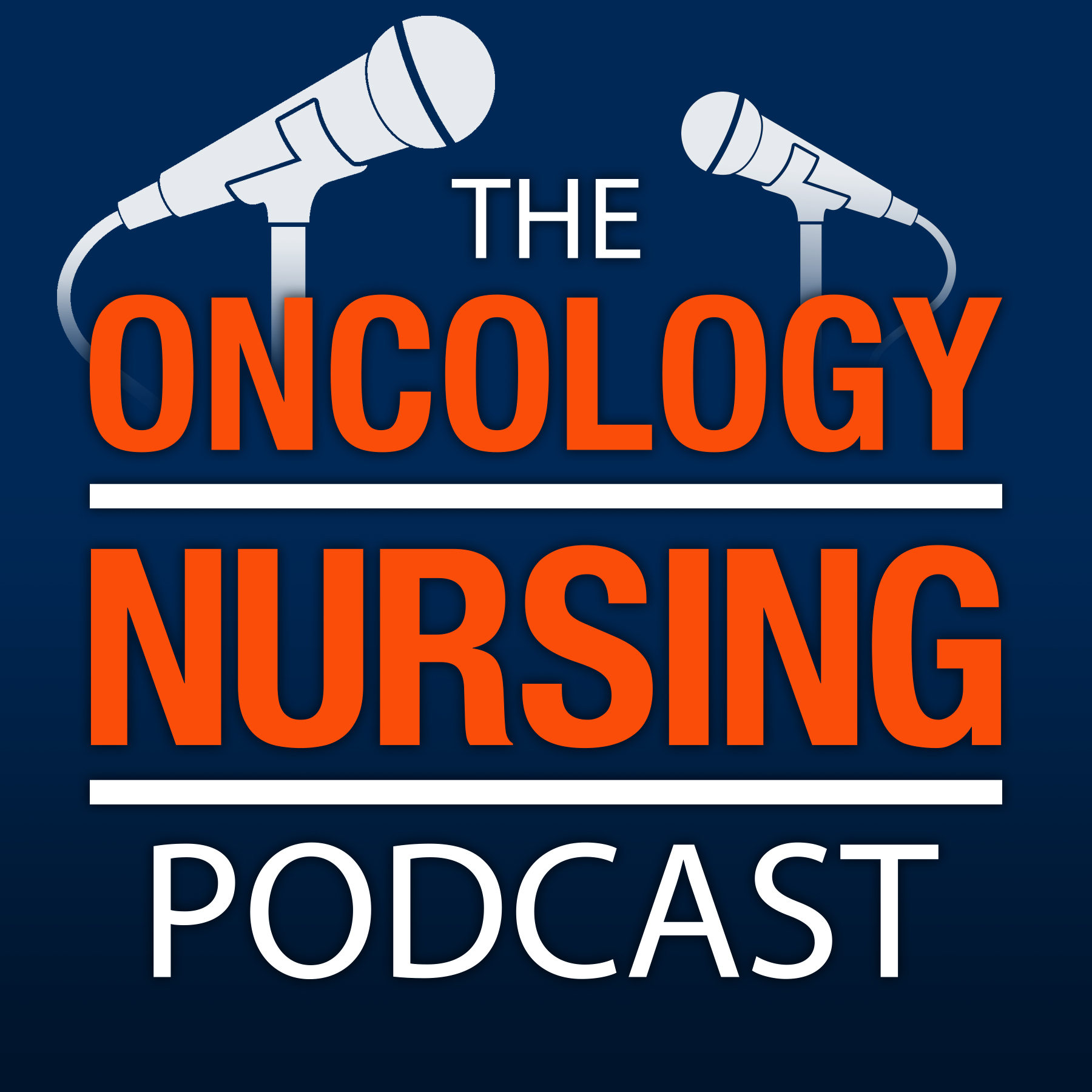
Episode 261: CAR T-Cell Therapy for Hematologic Malignancies Requires Education and Navigation

The Oncology Nursing Podcast
Shownotes Transcript
“Just like with anything we do in oncology, a lot of education is required. Nurses and coordinators are critical to start the education and provide effective resources that are reinforced throughout the treatment,” ONS member Beth Faiman, PhD, MSN, APN-BC, AOCN®, BMTCN®, FAAN, FAPO, advanced practice provider at Cleveland Clinic in Ohio, told Lenise Taylor, MN, RN, AOCNS®, BMTCN®, oncology clinical specialist at ONS, during a conversation about how to address knowledge gaps and barriers to practice regarding patients who are preparing for or who have received CAR T-cell therapy for hematologic malignancies. Faiman was one of the content experts for two ONS focus groups on the topic in March 2023. This podcast episode is produced by ONS and supported by funding from Janssen Oncology/Legend Biotech. ONS is solely responsible for the criteria, objectives, content, quality, and scientific integrity of its programs and publications. Music Credit: “Fireflies and Stardust)” by Kevin MacLeod Licensed under Creative Commons by Attribution 3.0 Episode Notes
NCPD contact hours are not available for this episode.
- ONS Clinical Update: Focus on Clinical Experiences With CAR T-Cell Therapy) Oncology Nursing Podcast episodes: Episode 1: Experiences With CAR T-Cell Therapy) Episode 139: How CAR and Other T Cells Are Revolutionizing Cancer Treatment) Episode 176: Oncologic Emergencies 101: Cytokine Release Syndrome)
ONS Voice articles: Studies Show Best Practices to Manage CAR T-Cell Therapies’ irAEs and Improve Outcomes) CAR T-Cell Therapy Programs: Essential Elements to Establish a Successful System) A Body of Evidence Helps Nurses Manage CAR T-Cell Therapy Toxicities)
Clinical Journal of Oncology Nursing articles: CAR T-Cell Therapy: Updates in Nursing Management) Building a Program: Implications for Infrastructure, Nursing Education, and Training for CAR T-Cell Therapy) Management Across Settings: An Ambulatory and Community Perspective for Patients Undergoing CAR T-Cell Therapy in Multiple Care Settings)
ONS clinical practice resources: Chimeric Antigen Receptor T-Cell Therapy: A Timeline of Events and Adverse Events) Cytokine Release Syndrome)
ONS course: Nursing Considerations for CAR T-Cell Therapy for Patients With Hematologic Malignancies: Patient Education and Symptom Management) ONS videos: CAR T-Cell Therapy) Cytokine Release Syndrome)
American Society for Transplantation and Cellular Therapy Consensus Grading for Cytokine Release Syndrome and Neurologic Toxicity Associated With Immune Effector Cells) International Myeloma Foundation) Leukemia and Lymphoma Society) Multiple Myeloma Research Foundation) New England Journal of Medicine article: Ide-cel or Standard Regimens in Relapsed and Refractory Multiple Myeloma) Transplantation and Cellular Therapy article: Overcoming Barriers to Referral for Chimeric Antigen Receptor T Cell Therapy in Patients With Relapsed/Refractory Diffuse Large B Cell Lymphoma) Learn more about CAR T-cell therapy and risk evaluation and mitigation strategies (REMS)).
To discuss the information in this episode with other oncology nurses, visit the ONS Communities). To provide feedback or otherwise reach ONS about the podcast, email [email protected]). Highlights From Today’s Episode “Just like with anything we do in oncology, there is a lot of education that is required. The same navigators that take care of our patients through the transplant and cellular therapy process, we have similar cellular coordinators that were part of the focus group. These navigators were critical to start the education and provide effective resources that were reinforced throughout the treatment.” Timestamp (TS) 09:00 “The nurses and coordinators play a huge role during the transition of care. Not only do they help with coordinating appointments, but also the scheduling of tests and coordinating with the referring team. I heard a lot in the focus groups about the nurses communicating from inpatient to outpatient, and also coordinating from center to center.” TS 10:22 “Patients can get really nervous when they’re feeling sick. I explain it to them like, “You know how you get a flu shot, and you might get a little reaction as we’re training your immune system to provide immunity? Well, it’s like that, but way worse.’ So, you can get really sick feeling and achy from this, and so that psychosocial support is super important.” TS 18:16 “It takes a lot of burden on the patient, caregiver, and the nurse to really be astute to those symptoms and intervene. We do provide wallet cards to patients. We educate the emergency department staff. We also heard about the infection monitoring and caregiver support is absolutely critical. Fortunately, the symptom management has become quite standardized, which really affords the nurses more autonomy to intervene more efficiently.” TS 20:46 “The nurses found for education a teach-back tool to be quite useful. One of the nurses mentioned asking the patient questions such as, ‘What will you do when you have a fever? Tell me what you do,’ and “What do you understand from what the doctor just told you?’ And so that was just kind of a way that they could go back and forth with the educational process and really understand what the patients understood.” TS 25:46